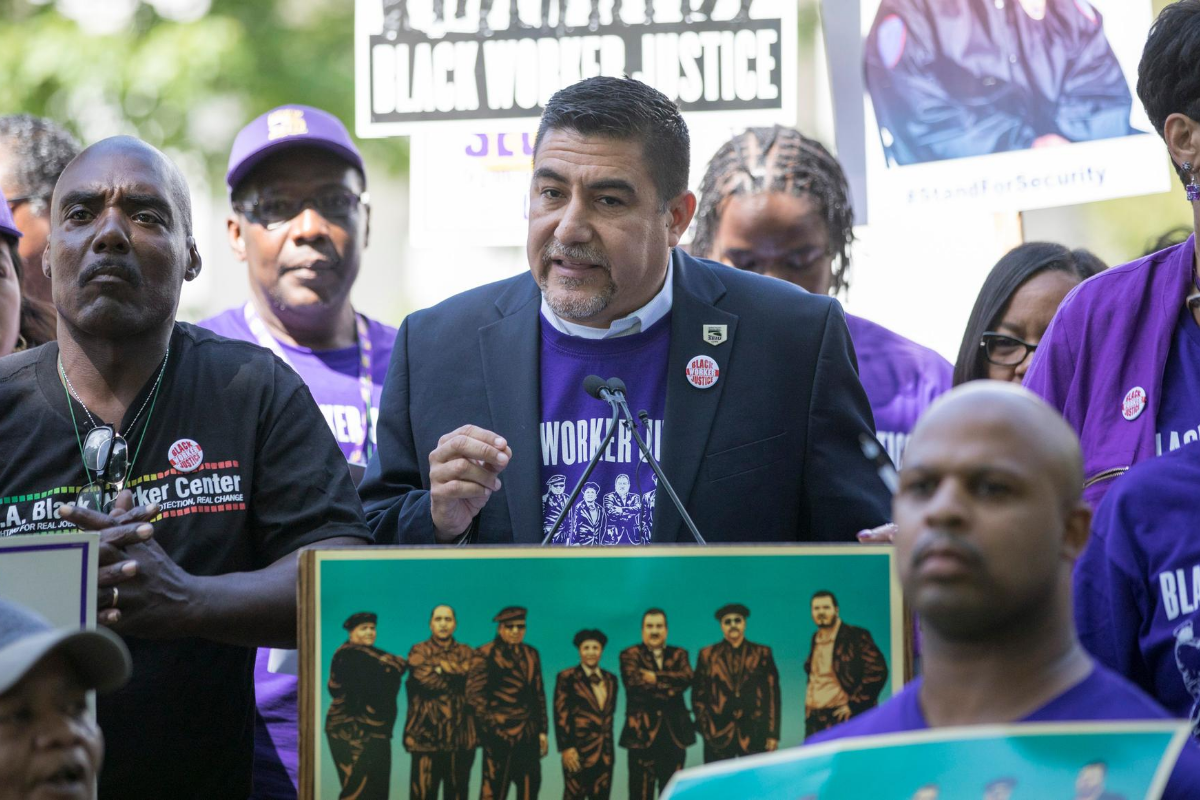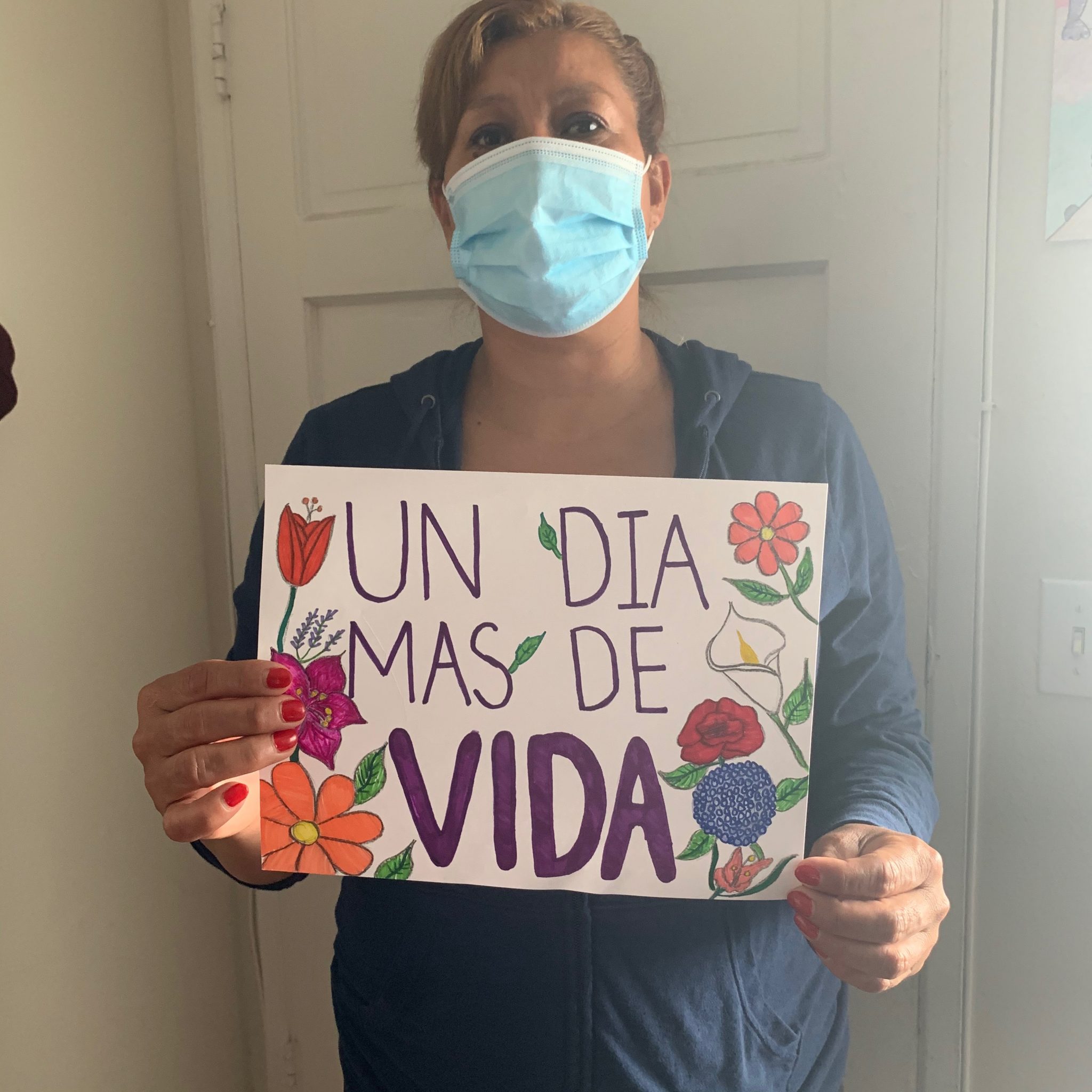

David Huerta (Photo courtesy of SEIU-United Service Workers West)
By David Huerta
Marginalized communities and people of color are often the most affected when disasters and crisis strike. As municipalities across the country continue to grapple with the ramifications of the COVID-19 pandemic, this time is no exception.
Businesses across the U.S. are navigating reopening during the pandemic, and the people who clean and sanitize working spaces play a more essential role than ever. Yet, very little attention has been given to these lower-paid workers, who have been deemed essential.
Even before the coronavirus hit, the janitorial workforce made up a vulnerable demographic. In California, for example, janitors are largely immigrants, work for low pay, have limited English-proficiency, and lack access to formal education. They often face discrimination, financial insecurity, lack of labor protections, and limited healthcare access.
Janitors represent a special force that protects the public from microorganisms that spread infectious diseases and threaten our safety, and will be even more critical as people make their way back into office buildings, not just hospitals. Yet, they are not provided with either the recognition or the appropriate level of support they need to keep themselves and others safe. Now, during the most virulent outbreak in a century, we must do better to protect and support cleaning workers.
During this pandemic, many people with essential jobs have no choice but to put themselves and their families at risk because they live paycheck to paycheck—they don’t have the luxury to shelter at home. Lesbea, a janitor in Los Angeles, who has two young children, recently told us that her son has asthma. “I need to leave my home and put them at risk to be able to support my family,” she says.
Cleaning workers do most of their work after hours or when spaces are not in use, and so they often go unseen. As such, workers like Lesbea can be most vulnerable to abuses and need protections from irresponsible employers, who would exploit them and risk everyone’s safety to increase their bottom line.
Strong “high-road” partnerships between employers and the organizations that advocate for the welfare of these workers are critically important. Close collaboration between responsible employers and the unions that represent these workers, for example, has the capacity to adapt workforce practices to the rapidly evolving health and safety recommendations.


(Photo courtesy of SEIU-United Service Workers West)
Workers need to know how to keep themselves safe while the industry changes to adopt new cleaning standards and avoid disease exposure from social contact at work. They also need to be given appropriate protective gear and told if a positive case has been identified in their workplace.
Building Skills Partnership (BSP) is a California-wide nonprofit that has partnered with employers, building owners, and SEIU-United Service Workers West for more than a decade to train janitors and other property service workers in an evolving industry.
Among other initiatives, BSP offers specialized vocational training. The Green Janitor Education Program, for example, is a training and certification course for janitors on meeting sustainability goals for buildings. BSP also provides Emergency Preparedness Training, which trains airport workers to assist passengers in the event of a public threat.
If we are to reduce the spread of COVID-19 in public buildings, we need stronger industry standards for cleanliness and sterilization, and a professionally trained janitorial workforce specialized in infectious disease prevention. In order to support an efficient implementation of these standards, we need expanded employer and labor partnerships—like those that SEIU-USWW, BSP, responsible janitorial contractors, and building owners are leading on.
Now more than ever, we must invest in worker training and labor-protection solutions that address public health, worker retention, and career mobility.
In the last recession, many building owners cut janitorial services, but cleaning services can no longer be considered optional or a luxury—cleaning services are a public health necessity. Now is the time to train janitors in infectious disease prevention, using video and online tools to do so without putting them further at risk. Now is the time to pave the way for safer workspaces and a more highly skilled workforce.
As leaders in the fight against the coronavirus, janitors have a unique experience among our communities. Policy makers and local agencies can learn a lot from their on-the-ground experience to help protect public health. But for this to happen, we need to bring cleaning workers —especially immigrants— out of the shadows, recognize their professional potential, and honor the risk they are taking to provide an essential public service.
If we can come together in supporting janitors with the tools they need to excel, we will be taking a big step towards enduring the outbreak and stimulating an equitable and sustainable recovery.
***
David Huerta is President of SEIU-United Service Workers West (SEIU-USWW).


